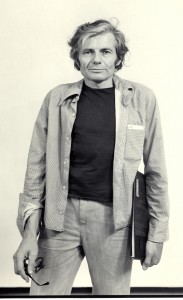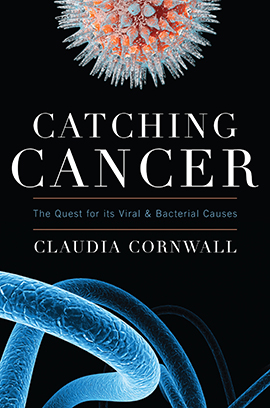A letter from St. Petersburg arouses memories of Curt
Tod Greenaway was a friend of Curt’s and he is quoted in At the World’s Edge. (p. xv and 204). He was an artist, a writer, and a photographer. Recently I had the pleasure of encountering more of Tod’s thoughts about Curt. They came to me via Irina Borisova, a writer in St. Petersburg, Russia, with whom Curt and Tod corresponded. Below you will find a letter Tod wrote to her two days after Curt died.
I also wanted to mention that I have several copies of Tod’s last book of essays, Loitering, to give away, thanks to the generosity of his daughter, Rachel. If you would like one, let me know.
Date: December 19, 1998.
Dear Irina:
So, it has finally come to pass, the death of Curt Lang. I am sorry not to have written to you. Everything was happening so fast, there were so many demands made on my time and I was rather frantic at not being able to get to my work. And I am not feeling all that well. But it was clumsy of me not to think of you being left in suspense.
An extraordinary aspect of Curt’s illness and death is the interest he took in it. Of course, we are all interested in what is wrong with us, and we would certainly be interested if we were dying. But Curt applied the same passionate curiosity to it that he brought to everything that interested him. He sent Greg out to get books on cancer and cancer therapy, he talked to all the medical people. He was impressed by them, he respected anyone intelligent. He talked to me for hours, it seemed, on the telephone about the process through which he was passing.
I shall tell you all I know. The first time I saw him since the diagnosis was about a week ago. I went to his house because he had a poem that he wanted me and Fred to read and comment on before he showed it to other people. The chemotherapy had just started, and I was appalled by his weakness, the faintness of his voice. He had been oppressed by the whole thing, but then had an extraordinary dream, a kind of catharsis. And he wrote this poem of the dream. I am appending it.
The next time I went to see him was at the hospital. Greg and Daphne, his girlfriend, and Ruth were there, obviously in a state of terminal exhaustion –Ruth had been spending the nights beside him on a cot provided by the hospital.
Meeting Curt at the hospital was a curious experience. His voice had recovered its resonance, his right eye was tracking again, so the eye patch was gone, and he was full of words, so it was like talking to the old Curt again, except that a Curt radically skewed. He recognised everyone:
“Hi Tod,” as casually as always – but he was “off his head,” as we say: essentially dreaming awake. Once he described how he was collecting carbon; someone was building something and it was essential to get the carbon right. Greg said, carbon equals life (the “carbon-based life-forms” of science fiction) but I am not convinced. Another time he was occupied in applying european technology to feeding people. He said, “it’s cheaper to feed people than to” . . . a long anguished searching for the word . . .”lift them.” And so on. It was the same Curt, the same intellectual energy,the same fierce organising ability — only dreaming awake while talking to us. Do you have dreams where you have to work out some procedure, and the dream is so strong that when you wake you go on trying with your conscious mind to work it out, until you come to realise it is a nonsense problem? I do. And often he would say “Dear me!” and run his thin hands through his hair in despair, either at not being able to explain or at our inability to comprehend. Fascinating and dreadful, this wreckage of a fine mind.
The night before last he had a frightening seizure, couldn’t breathe, bit his tongue. I wasn’t there. When I came in the morning he was in coma, breathing shallowly. When I came back in the afternoon it was more effort to breathe. A nurse was coming in at shorter and shorter intervals to give him a shot of a drug that would trick his brain into not panicking at the build up of CO2 between breaths. Ruth became upset at this “pumping him full of chemicals.” It was “not a natural death,” she said. The rest of us thought it would ease him on his way out. She was crying and becoming more and more upset. Curt solved the controversy by quietly ceasing to breathe, and that was that.
I am glad to have been there. It was good to be with those three. They are tough and realistic people. Unlike my family and many other people in Canada, they do not take refuge in euphemisms like “passing away” for dying. Death is death. It was refreshing. And there was much healthy joking. After the death we left Ruth alone with Curt. Ev was there by that time, she said “Ruth was having a last conversation with Curt.” Greg said, “Finally she can get a word in edgewise.” And everyone laughed. If you knew Curt you would know how true.
So now he’s gone. I had not thought the loss of someone would leave one so DIMISHED. As Fred said, it is like losing part of your mind. It would be the same if I lost you or Fred, to say nothing of the children or Fumiko. Apart from the compassion that arises from any untimely death, and apart from personal liking, the sweetness of Curt’s optimistic personality, his death is a disaster for me, as I expect it is for you. And of course after your work was published he had hoped to promote mine. And I hoped to work with him on the design of boats. He was such a good person to work with.And most of all: conversation. Curt was very argumentative — not contumacious, certainly — but argumentative. I had found it hard to argue with him, never having had anyone to practice on, but I was beginning to get the range of his mind and I was looking forward with relish to years of powerful argument.
The death of Curt leaves a deafening silence.
A POEM IN PRAISE OF PAGAN WOMEN[1]
They were old.
They were young.
They were children.
They were good.
My tribe had golden hair in braids;
They were the witches of England.
The others had black hair that stood up in shocks;
They were the witches of Ireland.
There was no malice in any of them.
They lived to grace the world.
They gave life and love to men.
They made us.
Each year they contested
To be the most giving,
To be the most useful,
To be the most blameless.
They were noble.
Each year they honour each other.
The contest is eternal.
This year the black haired ones were best.
For one half hour the gold haired ones danced to honour them.
Then for one half hour they danced a loud dance to honour themselves.
See these honourable women in the sunlight.
Gracing the world.
Dancing in long rows.
Making the world.
When Curt talked about the dream, in spite of his weakness (this was when the chemotherapy was doing its worst to him, his liver was full of toxin that he had not the strength to flush out) he roused and became almost his old self, his eye shone. The dance was LOUD, he said, there were THOUSANDS of them, they STAMPED their feet and the dust flew. Clearly this dream had been one of those major events that happen to us only at some crises in our lives.
He was a very strong man, you know. Though he was afraid, of course, he never flinched I think from knowing. I wonder if, paradoxically, in this dream of the splendour of the world, he came to terms with the bitterness of dying before his time.
Tod
[1] Also quoted in At the World’s Edge, courtesy of Greg Lang





Leave a Comment